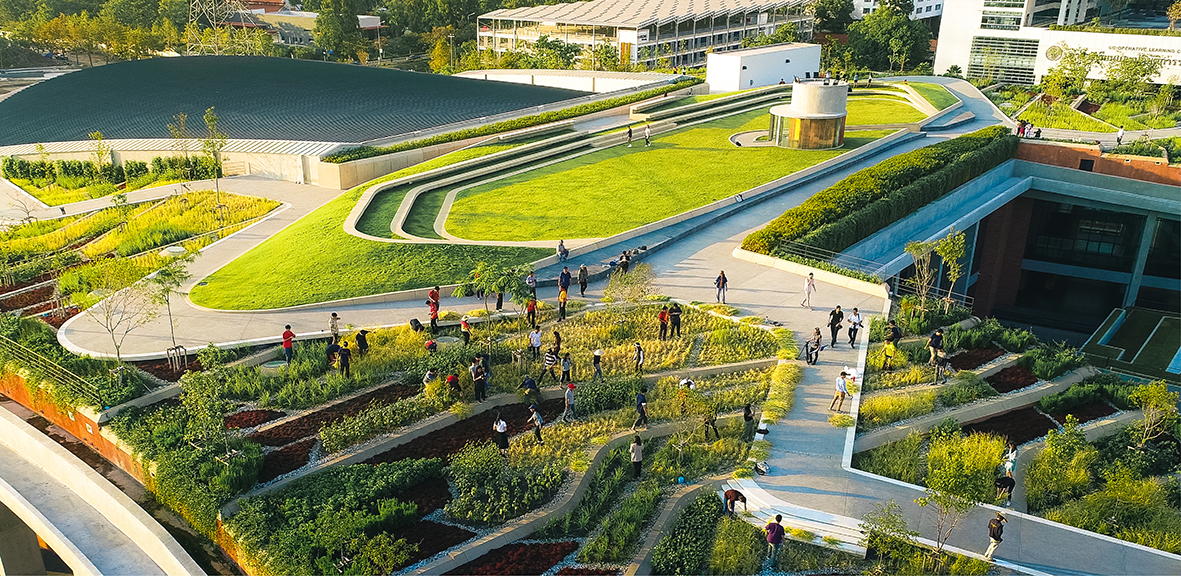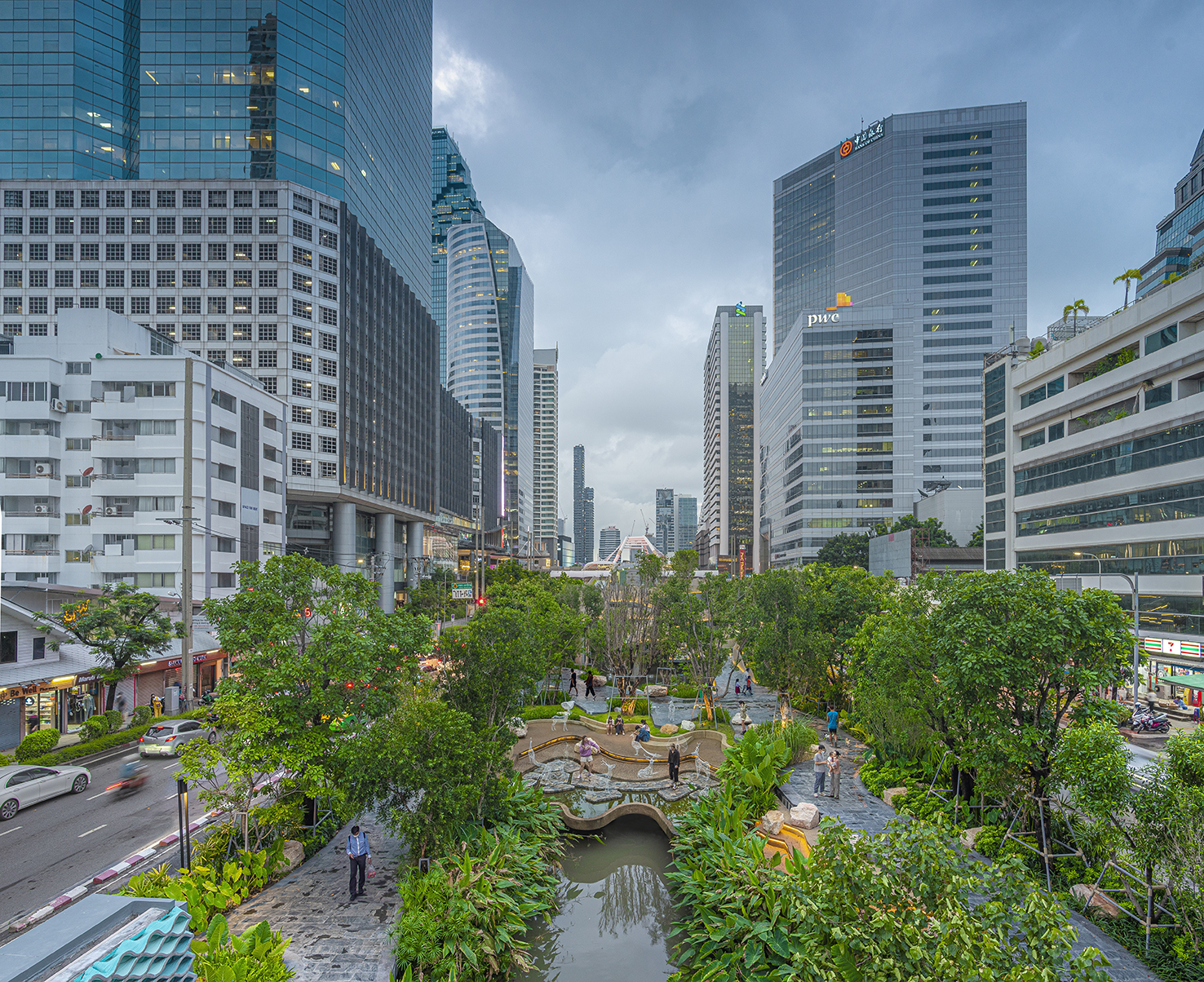Bangkok’s Green Revolution: Co-Creating Climate-Resilient Cities for Tomorrow
Organization: Landprocess and Porous City Network
2024 LOCAL ADAPTATION CHAMPIONS AWARD NOMINEE
Bangkok is one of the world’s most climate-vulnerable cities, facing a myriad of environmental challenges. Rapid urbanization has turned its once-thriving wetlands into impervious surfaces, leading to increased flooding, and worsening urban heat. With climate change driving and intensifying these risks, Bangkok’s residents face heightened water scarcity in addition to frequent extreme weather events. In a city where infrastructure struggles to handle even current rainfall patterns, the need for adaptive and resilient solutions is urgent.
Innovative Responses Rooted in Local Leadership
In response, Kotchakorn Voraakhom, CEO and Co-Founder of Landprocess and Porous City Network (PCN), has led a pioneering effort to transform Bangkok’s landscape through nature-based solutions (NbS). Her work reimagines urban spaces to better manage water, reduce heat, and enhance biodiversity, while also empowering communities to play an active role in shaping their environments.
“Our mission is to make Bangkok porous again,” says Voraakhom. “By creating infrastructure that mimics natural systems, we’re not only reducing climate risks but also giving people a reason to reconnect with nature in their everyday lives.”
Projects such as Chulalongkorn Centenary Park, Bangkok’s first blue-green infrastructure, showcase the potential of NbS to alleviate the city’s flooding issues while providing much-needed public green space. This 11-acre park can store up to one million gallons of water, offering flood resilience while serving as a community hub. Equally transformative is the Thammasat Urban Farm Rooftop, Asia’s largest organic rooftop farm, which repurposes over 236,000 square feet of wasted space to produce 80,000 meals annually and harness solar energy.

Thammasat Urban Farm Rooftop
Co-Creation with Climate-Vulnerable Communities
What makes Voraakhom’s approach particularly unique is its focus on co-creation with local communities, especially those most impacted by climate change. From working with Ladprao Canal Community, prone to frequent flooding, to addressing land rights issues with the Hat Lek Fisherfolk Community, her team ensures that the voices of the most vulnerable are central to the design and implementation of these projects.
“We don’t just design for communities; we design with them,” Voraakhom explains. “By integrating local and indigenous knowledge with modern technology, we create solutions that are culturally appropriate and more resilient.”
This collaborative approach has resulted in projects that not only address climate impacts but also foster social equity and inclusion. Women, youth, and marginalized groups are actively involved in the process, creating a sense of ownership and empowerment that strengthens the resilience of these communities.
Impact and Scaling for the Future
The impact of Voraakhom’s work is far-reaching. Projects like the Chong Nonsi Canal Park, a 4.5 km green-blue corridor in Bangkok’s central business district, repurposes canals to enhance urban mobility, walkability, and water management. The Chao Phraya Sky Park, built on 40-year-old leftover infrastructure, has transformed into a new urban landmark, showing how even neglected spaces can be revived to support climate resilience.

Chong Nonsi Canal Park
These projects not only reduce flooding, combat extreme heat, and enhance urban biodiversity, but they also create jobs, improve food security, and foster community well-being. With the capacity to absorb rainfall from 50- to 100-year precipitation events, the water management strategies of these projects set a new benchmark for urban adaptation in Southeast Asia.
Looking ahead, the Landprocess and PCN team has plans to scale their work beyond Bangkok. “We are working to bring our nature-based solutions to 7,000 coastal villages across Thailand, addressing both urban and rural climate vulnerabilities,” Voraakhom shares. “This is just the beginning.”